Not everyone can be proud of having over 600 years old books in their library. These books are especially valued and protected by the Library of Kaunas University of Technology. KTU library has about 350,000 books, while the TOP 5 interesting books include the oldest book in Kaunas libraries and the first Lithuanian textbook about artificial intelligence.
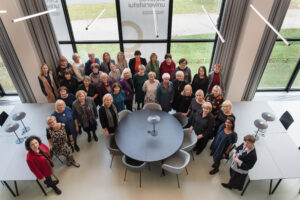
Over the past century, Libraries have evolved from storing books with wooden covers to introducing electronic resources. In 2022, the 100th anniversary year of the University of Lithuania, the new KTU Student Campus Library opened its doors. This year, the KTU Library, which traces its origins to the Lithuanian University Library, is celebrating its centenary.
“The library is transforming together with the university – as the university’s didactic system is changing and becoming more innovative, active learning methods are being introduced, the library’s resources, services and spaces are changing,” says Gintarė Tautkevičienė, the Director of the KTU Library.
Today, the library is a modern study and research information resource centre, integrating print and electronic information sources. However, the rich history of the university and its exclusive publications is not forgotten. Below you will find five of the most interesting books presented by the KTU Library team.
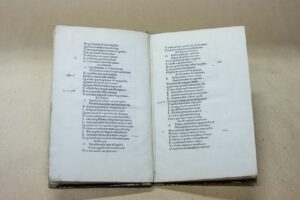
The book “Carmina…” by the Roman poet Caius Valerius Catullus is the oldest in Kaunas libraries, published in Milan in 1475.
According to Edita Korzonaitė, the Head of the KTU Library’s Rare Books Group, in 1930, Walter Fischer, the owner of the German bookshop in Kaunas, donated a part of the library of the Counts of Tiškevičius in Raudondvaris to the KTU Library. The gift consisted of 7,874 items, including three incunabula (Incunabula is a book from the earliest period of printing).
“Carmina…” is a collection of 116 poems published in Latin.
“According to the literary scholar Dr Dalia Dilytė-Staškevičienė, the work of C.V. Catullus influenced not only Roman but also European literature,” says Korzonaitė.
The copy in the KTU Library is bound in cardboard and coloured paper with a binding from the first half of the 20th century, with a cloth spine, corners, and gilt edges. The book shows underlining and brief handwritten notes in Latin from the 17th century.
Korzonaitė says that the KTU Library holds 14 Latin incunabula. All of them are described in detail in the Library’s catalogue. She emphasises that those who wish to read or look at “Carmina…” should contact the Library’s Rare Books Officer.
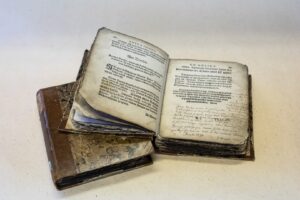
In 1928, the inventory of the Library was supplemented by “Postilla, tatai esti trumpas ir prastas ischguldimas Evangeliu” by the translator of the Bible and compiler of religious writings Jonas Bretkūnas, published in 1591 in Kaliningrad.
“The Postilla” is a 1,000-page two-part collection of original and compiled sermons, published in Gothic type.
“The book is bound in cardboard and coloured paper, with leather spines and corners, visible text inscriptions and marginalia. Regrettably, the book has developed defects over the years: missing text has been handwritten over, some pages are foxed, others have been glued together,” says Korzonaitė.
The book is believed to have 1,000 copies. According to a note in the Library inventory book, “The Postilla” used to belong to Adalbert Bezzenberger, Rector of the University of Kaliningrad and Honorary Professor of the University of Lithuania.
According to the head of the KTU Library’s Rare Books Group, this is the oldest Lithuanian book in KTU resources.
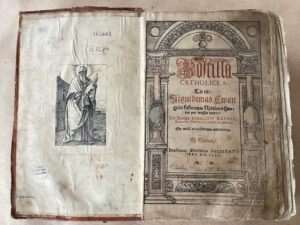
“Postilla catholicka“ by the priest Mikalojus Daukša was published in 1599 in the printing house of Vilnius Academy. It is a translation into Lithuanian of a small postilla by the Polish Jesuit Jakub Wujek, with a Polish translation of “Prakalba į malonųjį skaitytoją” (en. “Foreword to the kind reader”)
According to Korzonaitė, in 1937, the President of the Republic of Lithuania, Antanas Smetona, gifted Daukša’s “Postilla catholicka“ to the University’s Library. The book has coloured initials (the first letter of the text is enlarged), paragraph numbers and other details.
Korzonaitė says that Dr Nijolė Lietuvninkaitė, the former head of the Rare Books Department of the KTU Library, a book scholar, doubted the authenticity of the book precisely because of the details of the text highlighted in different colours, and carried out research: she compared it with the copy kept in the Vilnius University Library, consulted with experts in restoration, bookbinding and book scholarship.
The study revealed that the “Postilla catholicka” in the KTU Library is not a 1599 edition, but an aged and coloured copy of a 1926 photographic edition.
“Anyone willing to see it and learn more about the history of the copy of “Postilla catholicka“ should contact the Library’s Rare Books Officer,” says Korzonaitė.
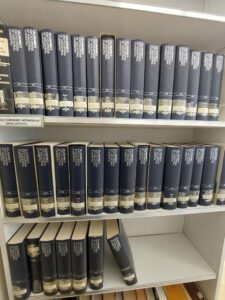
“Ullmann’s encyclopaedia of industrial chemistry”, a 38-volume encyclopaedia from 1987, was donated to the KTU Library by the German Research Foundation.
“Around 2000, the KTU Library received news that the German Research Foundation had provided funding for the purchase of valuable printed books. The Library staff consulted with the university scientists on what kind of publications they would need, and it was decided to purchase Ullmann’s encyclopaedia of industrial chemistry,” says Alina Andriuškevičienė, Head of the Information Resources Department of the KTU Library.
After the Library requested this encyclopaedia, it was purchased and donated to KTU. According to Andriuškevičienė, this encyclopaedia is valuable not only in terms of its content but also because it was quite expensive at that time.
“From 2000 to 2014, the encyclopaedia was extremely popular. Our Library staff had put the encyclopaedia on a separate shelf to make it easier and quicker for the reader to find the information,” she says, emphasising that the encyclopaedia is still quite popular today since chemists find a lot of valuable information there.
The encyclopaedia is stored in the KTU Faculty of Chemical Technology Library. The book is only available in the reading room.
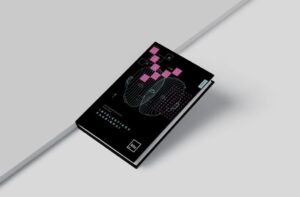
Rasa Dovidonytė, the Head of the KTU Student Campus Library, says that the readers’ interest in artificial intelligence has increased recently. Although the Library has many publications on artificial intelligence and its applications in various fields, almost all of them are written in English.
The book “Intelektikos pagrindai” (en. “Basics of intelligence”) by Agnė Paulauskaitė-Tarasevičienė and Kristina Šutienė was published in 2022.
“The textbook is important for the Library since it is the first book on artificial intelligence (AI) by KTU researchers published in Lithuanian,” says Dovidonytė.
Agnė Paulauskaitė-Tarasevičienė, the co-author of the textbook, head of the KTU Artificial Intelligence Centre, and professor at the Faculty of Informatics points out that the book “Intelektikos pagrindai” (en. “Basics of intelligence”) is intended for the general Lithuanian public: not only students of information technology but also specialists in other fields (mechanics, economists, chemists, etc.), who want to understand the basic principles of the AI algorithms and learn about AI from a mathematical perspective.
This book is available to loan to members of the KTU community. There is also an e-book version available from KTU’s Technologija Publishing House.
According to Dovidonytė, “Intelektikos pagrindai” has already become popular among the readers. Additional copies of the printed edition have been ordered.